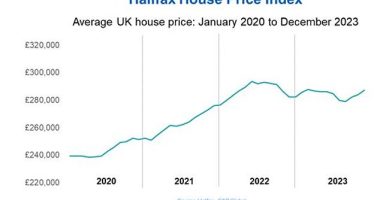AMAZON and Google are to be investigated over whether they have broken consumer laws for not doing enough to stop fake reviews on its sites.
Reviews impact businesses’ star ratings on both sites, and affect how prominently they – and their goods – are advertised to shoppers.
Fake reviews could boost these ratings, helping to flag sellers and their goods to customers more easily.
The Competitions and Markets Authority (CMA) has raised concerns that customers are being “misled” by the false shopper experience accounts.
It comes following a prior investigation by the watchdog into fake reviews on online shopping websites in May last year.
Amazon and Google were both flagged as companies that might not be doing enough to stop these posts being published online.
How to spot a fake review
HERE’S advice from Which? on how to avoid falling for a fake review and making a purchase you’ll regret:
- Don’t rely on ratings – delve deeper and read the reviews. Do they sound natural? Are the too long or short? Are they repetitive?
- Check the dates – look at when the reviews were posted. If many of them were posted in a short time period, it might mean there has been a push for reviews on Facebook groups or other platforms.
- Impartial reviews – click on some reviewers and check their history. Do they give everything five stars? What else have they bought? If they’ve bought multiple of the same type of product in the space of a couple of months, they might be a member of a review group.
- Difference of opinion – if people are praising an aspect or feature of the product that others are highly critical of, it might be suspicious.
- Pattern of ratings – are the ratings at different ends of the scale with very little in between? It’s rare that people are completely polarised about a product.
It will also look into whether both companies have been slapping sanctions or penalties on reviewers and businesses using made-up posts.
The watchdog will also investigate whether sellers have been getting away with manipulating their product listings, such as taking positive reviews from other items and posting them under theirs.
Andrea Coscelli, the CMA’s Chief Executive, said: “Our worry is that millions of online shoppers could be misled by reading fake reviews and then spending their money based on those recommendations.
“Equally, it’s simply not fair if some businesses can fake 5-star reviews to give their products or services the most prominence, while law-abiding businesses lose out.”
The investigation could lead to court action if needed, the CMA said.
Last year, Amazon deleted 20,000 reviews after users allegedly raked in thousands of pounds posting fake five-star write-ups.
It came following reports in 2019 that the online retailer was only removing a fraction of suspicious product posts.
An investigation by Which? also revealed the booming business in fake review writing was rife on Google too.
The research revealed that bogus posts were being used to promote businesses from bakers to stockbrokers on the website.
Amazon and Google are not the only companies that the CMA has cracked down on over suspicious listings.
It told Facebook and eBay to get tough on users posting illegal listings offering cash or freebies in exchange for “fake and misleading” reviews in 2019.
While TripAdvisor removed hundreds of fake reviews in 2019 after another Which? investigation found as many as one in seven hotels benefited from them.
Fraudsters created thousands of fake websites to scam Amazon Prime Day shoppers earlier this week.
Amazon is now selling Covid-19 tests online – and people can get one delivered in under an hour
Here’s where to buy the cheapest hot tubs – and Amazon is on the list.















